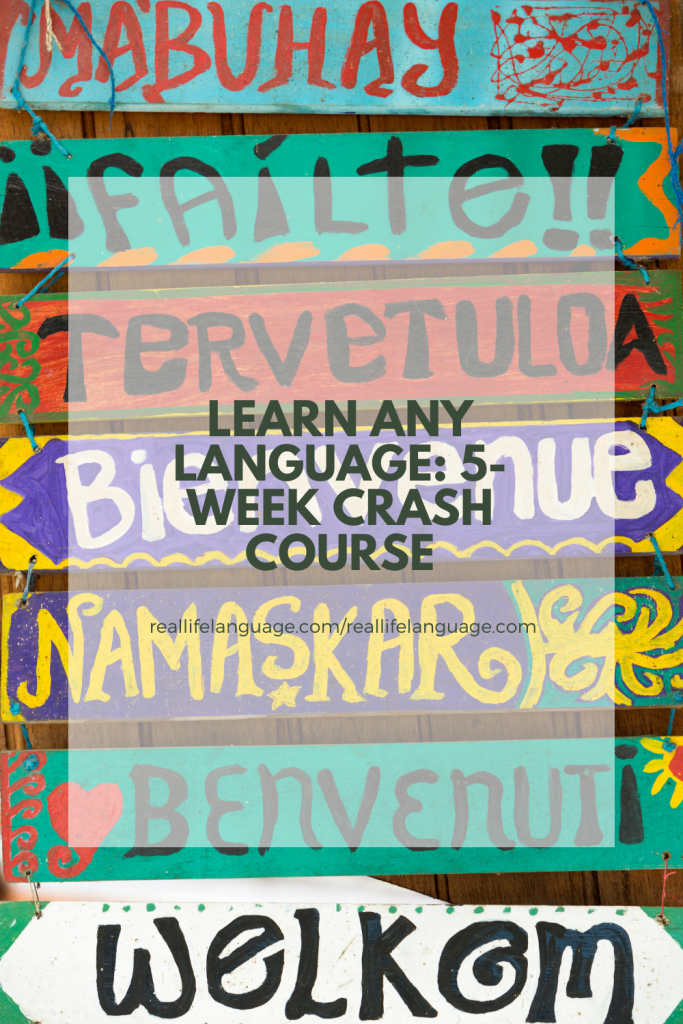
My 5-week crash course to learn any language. Implement a tip every day to learn any language.
Day One: Get Inspired. There are some amazing people who have managed to learn languages on their own by defying all the rules they were taught in school. Check out Benny Lewis’ Fluent in Three Months for great tips and inspiration!
Do you know of someone who is an inspiration to language learners? Please share in the comments!
Day Two: What Is Fluent? Check out this graphic to get an idea what it means to be fluent in any language.

The bubble that talks about words and sentences becoming paragraphs is approximately the B2 level or the ACTFL intermediate high. A lot of people who studied a foreign language at university reached this level. It’s decent and respectable level of fluency. If you want to work professionally in a country, you need to be up towards those connected paragraphs in extended speech. However, it all counts. You don’t have to be fluent to be a successful language learner. Aim for progress, not perfection.
What is your idea of fluency?
Day Three: How Long Does It Take? Different categories of languages take different amounts of time to learn. Languages that are close to English, think neighbors of England, are in category one. Languages that are much more difficult and far away from England, think Korean, Japanese, et cetera, take three to four times as long to reach the same level of fluency. Factor that into your expectations and timeline for reaching goals.
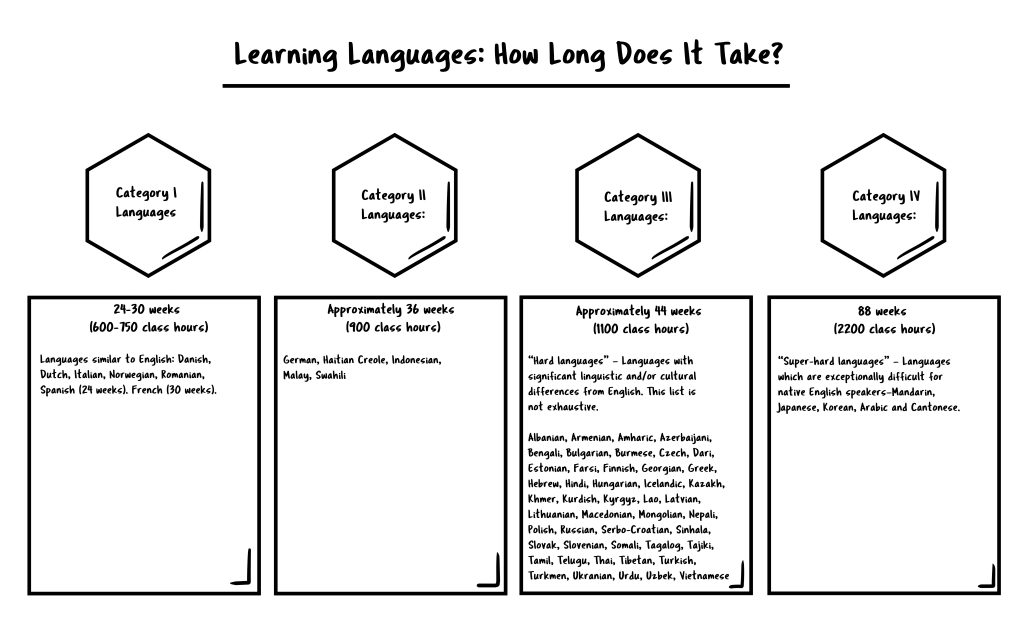
What language are you learning?
Day Four: Playlists. The secret to be able to express yourself in a language is to know enough words and phrases. Once you’ve memorized enough words and phrases, they all start working together, and you can start creating with language. This is a feature of the ACTFL intermediate level, or the CEFR B-level. A great way to do this is from playlists. Think relevant words and phrases that will help you survive in the target language. Create your own playlist, listen over and over. Then, record your own playlist, and you’ll have them right at hand on your phone. Think about useful phrases, like “I need”, “I want”, et cetera.
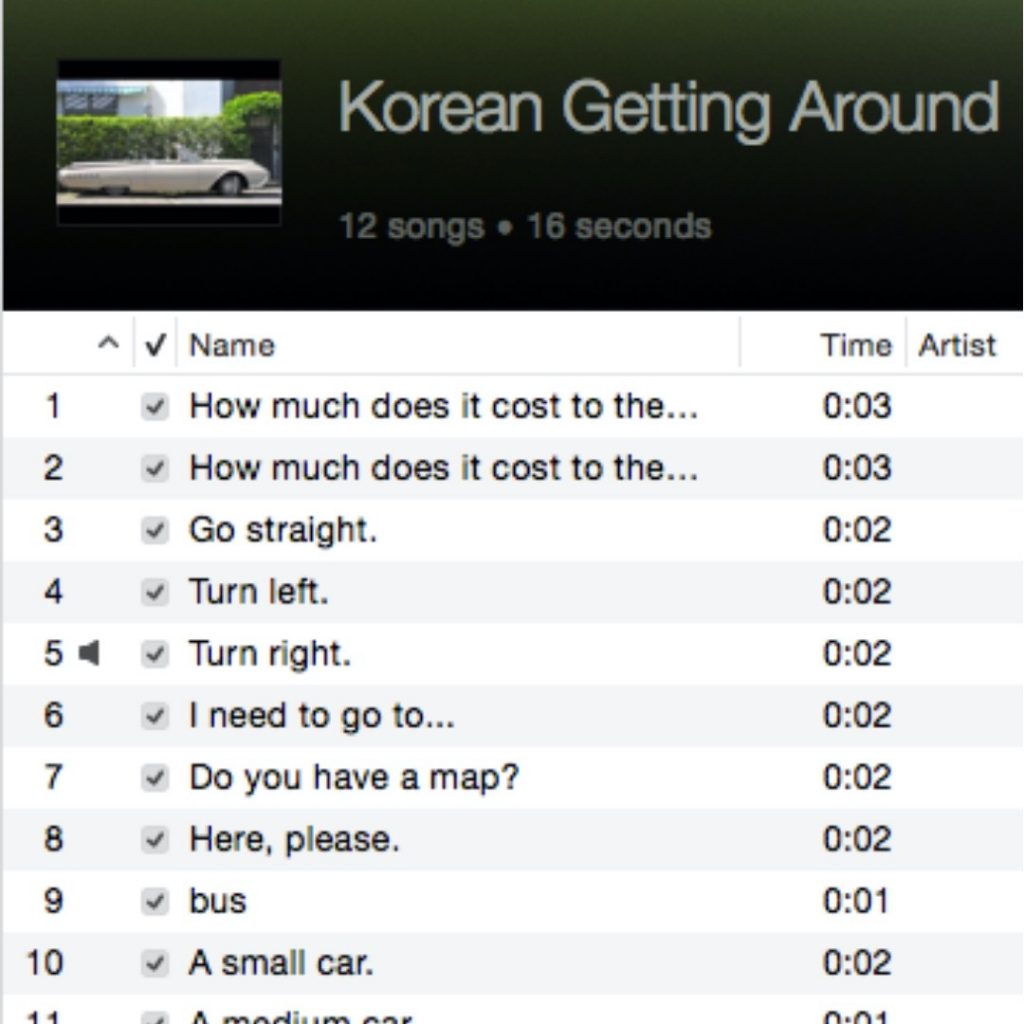
Do you have a method that helps new words stick?
Day Five: Learn Vocabulary. Every word and phrase that you know in a language will help you express yourself more. With that said, focus on chunks of vocab that will be useful for communication and focus on that. You’ll learn all your grammar and vocab in context.
How do you approach your language studies?
Day Six: Acting. Acting and learning languages have a great deal in common. When you’re starting out learning something over and over and over again to the point where it gets into your brain so you won’t forget it, this is what actors do with plays, and this is what successful language learners do when they’re starting out in a new language. You have to think like an actor- study your lines over and over until they stick.
Phrasebooks are perfect for this.
Do you have techniques to help memorize vocabulary effectively?
Day Seven: Phrasebooks. Phrase books serve up thousands of useful words and phrases to get you communicating right away. They are the perfect place to start learning any new language.
Have you tried ditching traditional programs and starting with phrasebooks and memorization of simple phrases?
Day Eight: Vocabulary Columns. A useful way to memorize all of that vocab we talked about in the previous days is to do this activity with vocabulary columns. Select a set of phrases that you want to learn and write them all down in a column on a piece of paper. You can either start with the target language, which is probably easier, or with English, and then draw a line. In the next column, write your other language equivalent. Again, this is easier if you start with the target language and start with recognizing.
Once you’ve done that successfully, you might have to look up a couple of words, fold the first column over. Now, translate, and again, going back and filling in any gaps that you might have, testing yourself and relearning those words that you missed. Fold the column over again and keep doing this until you can easily go back and forth between both languages, your native language and the target language.
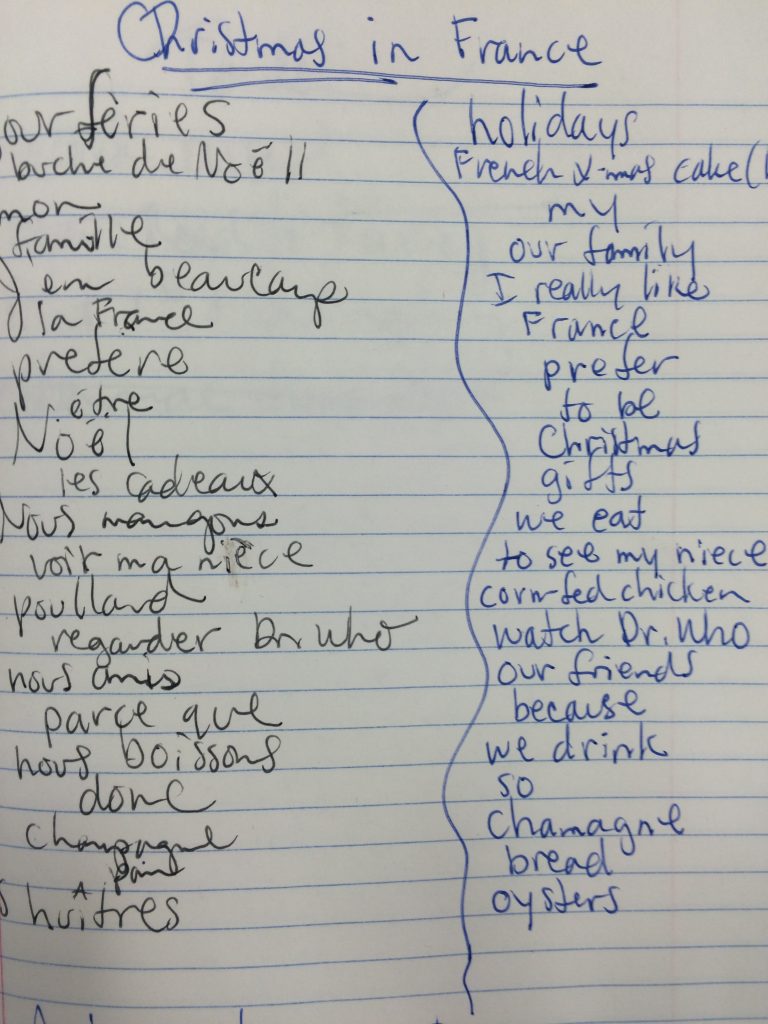
If you speak French, you’ll see an error I made at that phase. Fall in love with errors, because they are essential and unavoidable on this journey.
Have you tried this or something similar?
Day Nine: Task Notebooks. As we’ve said every day throughout this crash course, the more vocabulary you know, the closer you’ll get to being able to express yourself in this new language. Task notebooks are a great way to personalize your learning and accelerate it. Get a notebook and select a task.
When we talk about tasks, they’re all focused on things you can do in the target language, for example, ordering in a restaurant, complaining about an erroneous charge on a bill, talking about what you did yesterday. Those are all linguistic tasks. There’s an infinite possibility in them, but the beauty of task is that it focuses on specific things to learn how to do in this target language. Get a notebook where you select a task to learn, write down all the words and phrases you could possibly need for that, and then write them all out in the target language. Then, go back and do some of the memorization activities that we discussed in earlier days.
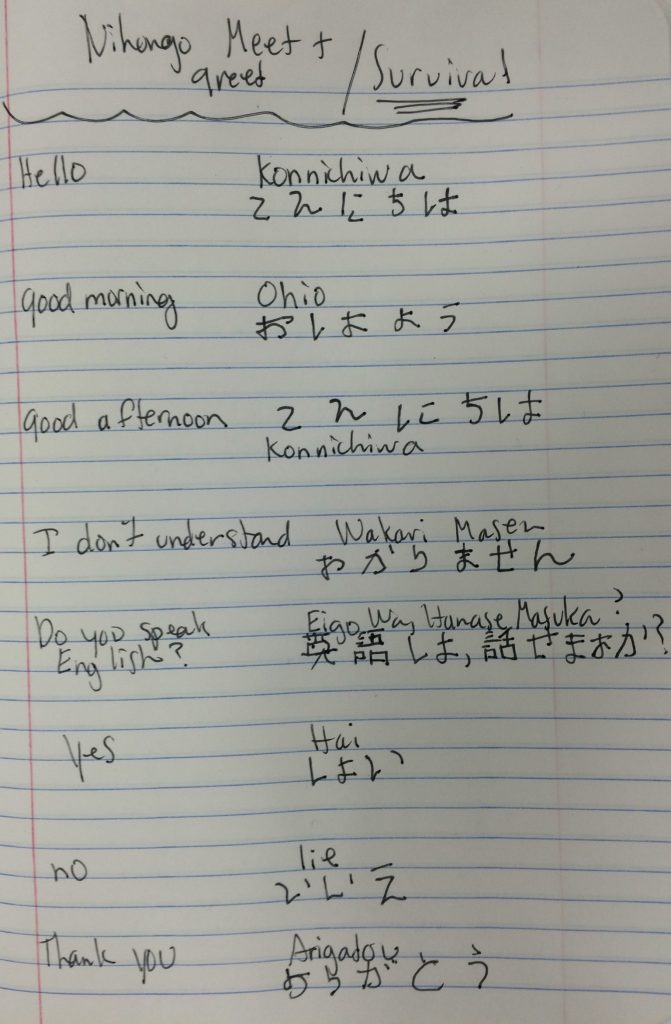
Do you have a way that works for you? Please share!
Day Ten: Fluency Notebooks. Fluency notebooks are one of my very favorite secret weapons to making progress in a language fast. Once you’ve mastered survival language, again, like language for a trip, try fluency notebooks. Get a blank notebook. Get your phone, or anything with a timer. Think about a task to talk about. It could be checking into a hotel, or it could be something much more complicated, like writing a letter to your senator, or talking about your life. Open up your notebook, turn the timer on, and write as much as you can. Don’t use any dictionaries or translators. When the time’s up, look at what you’ve done. Then, go back and fill in your gaps of all the words and phrases that you missed, or you didn’t quite know how to express correctly. Do this every day for five weeks and be amazed at the progress you make in fluency.
Have you tried fluency notebooks?
Day Eleven: The Five-Week Linguist Audio Training. Head here to sign up for the free audio training that talks all about all the concepts in this crash course of five weeks of how to learn a new language. It’s completely free.
Have you done the training yet?
Day Twelve: Reading To Learn Languages. Reading is one of the most effective ways to learn a new language. All the grammar and vocabulary is served up to you in context. You can repeat it multiple times, unlike when talking to somebody, and learn as much vocabulary and grammar as you want. Pair it up with one of your personal interests. The time you invest will be well worth the payoff.

Do you know of any great reading resources in other languages to share?
Day Thirteen: High-interest Reading. Just as we discussed yesterday, reading is one of the best ways to learn a language. Don’t be embarrassed if you enjoy reading things that don’t seem academic. Read things that are easy and fun. A lot of magazines also have plenty to read online. Look at this example of People in Spanish. Learn all about your target language culture and learn a new language at the same time.
Do you have any fun and easy reading resources online? Please consider sharing!
Day Fourteen: Graphic Novels. This is a continuation of our discussion about reading in foreign languages. Again, pick fun, easy things to read and watch your vocabulary explode. You also can do it completely on your own. Great way to independently study languages.
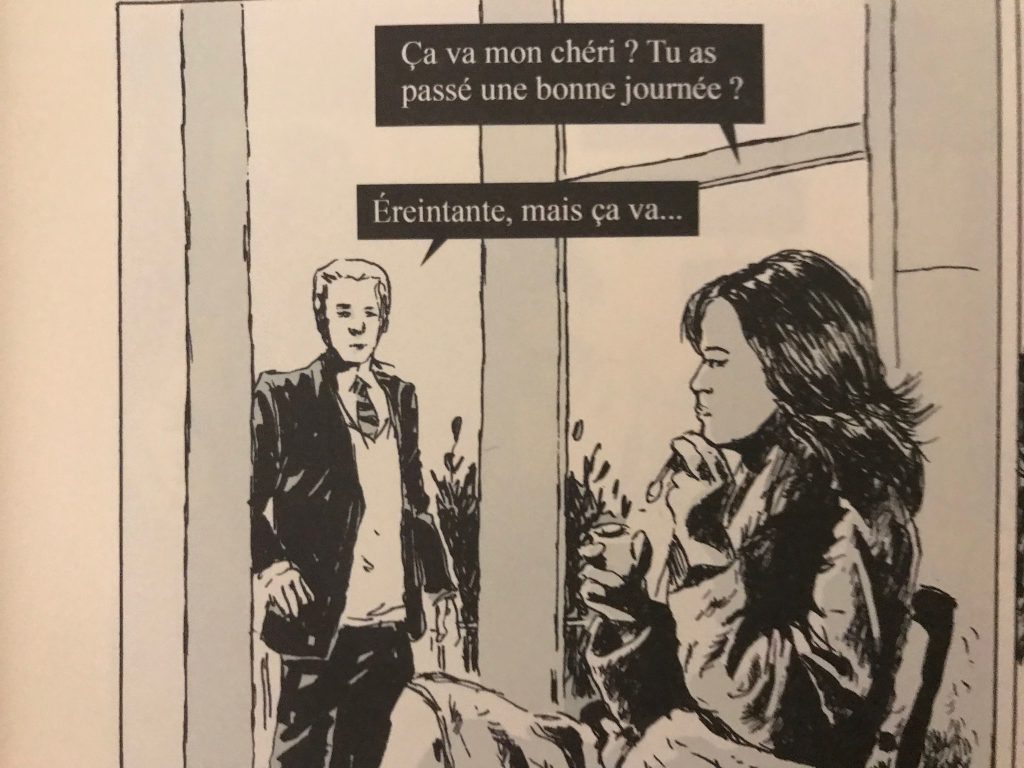
Do you have any graphic novel resources? Please consider sharing!
Day Fifteen: Newspapers. Want to learn a little bit more about what’s going on in the world than you’re gonna get from People Magazine or from graphic novels? Check out newspapers. Tons of newspapers publish content online.
Day Sixteen: Learn A Language For Your Trip In Five Weeks. No one can learn a language in five weeks. However, you can get a great basic grasp by focusing on survival words and phrases. Completely focus on language for travel. Think about survival tasks, like checking into a hotel, transportation, or ordering food.
Where do you like to start with a new language?
Day Seventeen: French For Travel And Beginners. Travel is the perfect way to learn a language. Not traveling? Language for travel serves up the perfect context to learn any language. Get your free French For Travel And Beginners Book.
Day Eighteen: Spanish For Travel And Beginners. Travel is the perfect context to learn a language. Challenge yourself over the next five weeks to learn Spanish for the airport, for getting around, for hotels and for eating and drinking. Go to realifelanguage.com/realifelanguageblog, under Free Language Books to get your free Spanish for Travel and Beginners book with free linked audio recorded by a native speaker.
Day Nineteen: Japanese For Travel and Beginners. Travel is the perfect context to learn a language. Challenge yourself over the next five weeks to learn Japanese for the airport, for getting around, for hotels, and for eating and drinking. Go to realifelanguage.com/realifelanguageblog, under Free Language Books to get your free Japanese for Travel and Beginners book with free linked audio recorded by a native speaker.
Day Twenty: Korean For Travel And Beginners. Travel is the perfect context to learn a language. Challenge yourself over the next five weeks to learn Korean for the airport, for getting around, for hotels, and for eating and drinking. Go to realifelanguage.com/realifelanguageblog, under Free Language Books to get your free Korean for Travel and Beginners book with free linked audio recorded by a native speaker.
Day Twenty-one: Italian For Travel And Beginners. Travel is the perfect context to learn a language. Challenge yourself over the next five weeks to learn Italian for the airport, for getting around, for hotels, and for eating and drinking. Get your free Italian for Travel and Beginners book with free linked audio recorded by a native speaker.
Day Twenty-two: Survival tasks. Want to create your own phrasebook to get started on a new language? Looking for a guide to guide and assess your learning? Free Language Books to get your free Survival Language Checklist.
Day Twenty-three: Study Abroad. You don’t have to completely change your life to be able to study abroad if you missed that experience early on. So many private language schools offer opportunities to go for one, two, three, and four weeks to study abroad.
Do you have experience with a short stint studying language abroad? Please share in the comments below!
Day Twenty-four: Italki. Don’t worry if studying abroad can’t fit into your life. Try #Italki. It’s an amazing way to connect with native speakers of the language you want to learn right from your home or from your mobile phone. Absolutely amazing!
Have you tried #italki?
Day Twenty-five: 20 Fun Activities to Learn a Language. Fun is an essential ingredient to learn a new language.
What are some fun activities you have done to learn a language?
Day Twenty-six: Computer Games. Computer games can be one of the funnest ways to learn a new language on your own. They are immersive and addictive. My very favorite is Instant Immersion from Eurotalk. There are so many games where you listen to the target language and follow commands. Learn colors, learn countries, learn basic greetings. You’ll spend hours. It’s addictive, fun, and engaging. #utalk is completely user-friendly and FUN. Price friendly as well.
Do you know of any fun computer games to learn a language?
Day Twenty-six: Duolingo. I love #Duolingo. What a great way to transform any downtime you have into fun, effective language learning.
Do you Duolingo? Please let us know if you do!
Day Twenty-seven: Audio Courses. Audio courses are one of my very favorite ways to transform any time into language learning time. As long as you have a phone, you can learn languages anywhere. Do them in your car, while you’re running errands, while you’re cooking, or while you’re cleaning your house. Do them on your nightly walk. Some of my favorites are #Pimsleur, #Michel Thomas, and #Paul Noble.
Do you know of a great audio course series to learn a language? Please share in the comments!
The Five-Week Linguist, Day Twenty-eight: Learn A Language Using Only Your Phone. If you have a mobile phone, you have the ultimate language learning lab. Head over to reallifelanguage.com/reallifelanguageblog to find out some surprising apps that will help you learn a language using only your phone.
Day Twenty-nine: French For Dating. There’s no better motivation to learn a language than falling in love. Not in love yet? Check out these words and phrases for dating. Not looking to date? There are lots of free phrases to learn how to talk about going out with your partner, and language to communicate with the babysitter.
Learning Italian? Italian for Love and Dating
Day Thirty: Time Tracker. Want to start keeping track of your time, as well as your progress? Go to reallifelanguage.com/reallifelanguageblog and download your free time tracker.
Day Thirty-one: Self-Assessment Workbook. Want access to some great free tools to measure your progress and set goals? Get the self-assessment workbook.
Day Thirty-two: Language and Culture. You won’t learn a language without learning its culture. They go hand-in-hand. Place as much emphasis on learning how people live, what they produce and how they see the world.
Spend time learning about the products, practices and perspectives of the culture of your target language.
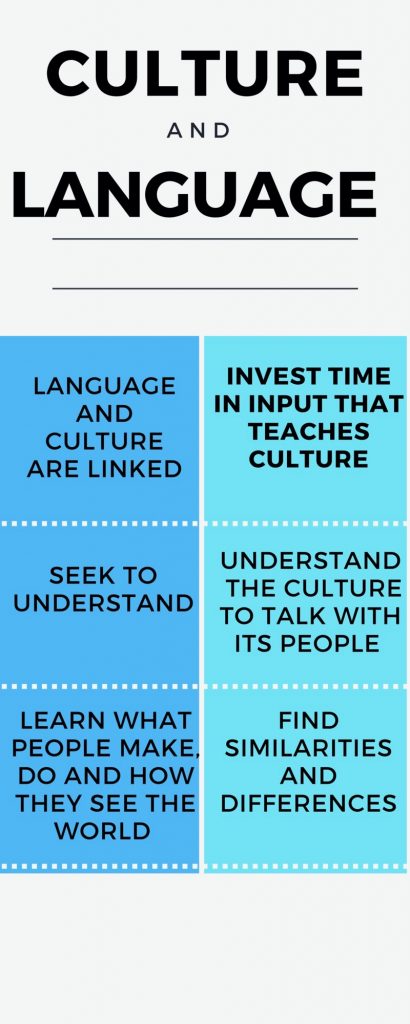
How do you learn about the culture of the language you are learning?
Day Thirty-three: Acquisition and Learning. Acquisition is how you learn a language naturally. Think about how you learned your first language.
Learning looks more like traditional textbooks, grammar rules and memorization. Smart language learners know how to use these things together to make progress at lightning speed.
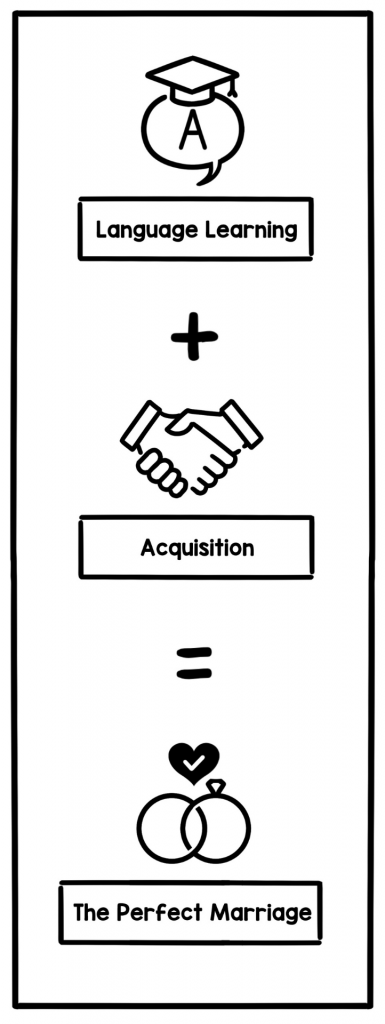
Day Thirty-four: Time + Engagement. Invest time each days engaged in learning a new task.
Day Thirty-five: Take it to the next level. https://real-life-language.teachable.com/p/the-5-week-linguist